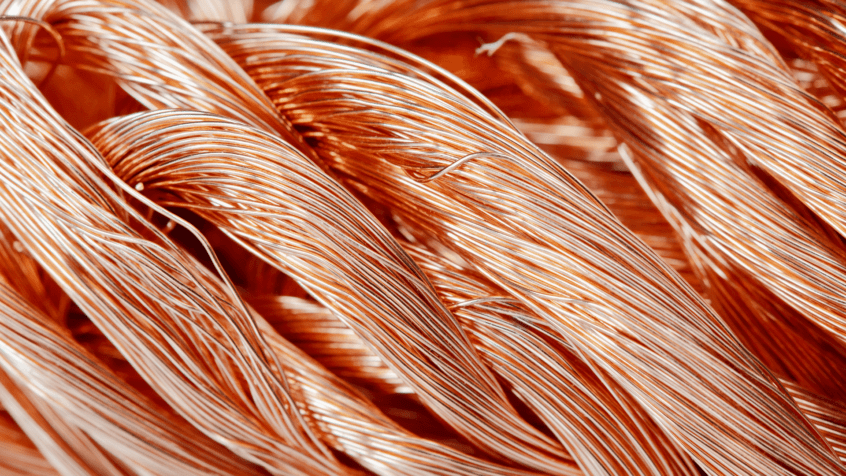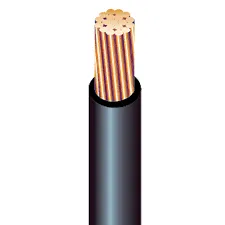You’ll find copper in a variety of applications and technologies. From power cables and kitchen appliances to construction tools and computers, copper is amongst the most common household metals. So, what exactly makes copper the popular choice for electrical wires? Let’s find out.
1. Great Conductor of Electricity
Like all metals, copper is a conductor of electricity. But what makes it the superior choice over other metals? Aside from silver, copper provides the most effective form of conduction. The electrons are arranged in a way that allows for free movement so electricity can pass through the wires easily and efficiently.
What is Electrical Conductivity?
Copper has the best electrical conductivity of all metals, surpassed only by silver. But what does this mean? If you’ve successfully blocked out your middle school science lessons, then here’s a mini refresher:
The strength of your wires electrical conduction impacts the level of resistance in the current. As previously stated, all metals conduct electricity, however, certain metals put up a level of resistance to this electrical current. This forces the current to be pushed by a power source (i.e., a battery) to flow through the wire. This extra step diminishes the strength of the current and results in excess energy loss. What differentiates copper is the ease of electrical flow, maximizing both energy transfer and conductivity.
60227 IEC 03 STANDARD 300/500V BV-90 H05V-U NYA SOLID COPPER BUILDING WIRE
2. Inexpensive
When you choose copper, you’re getting the best of both worlds. Effective and affordable: it’s the optimal choice for manufacturing companies. Gold and silver are great conductors of energy; however, they are far more costly for an insignificant pay off in quality. Copper on the other hand offers superior conduction to gold at a much lower price point. Solidifying it as a no-brainer when it comes to manufacturing.
3. Highly Ductile
While saving you money and being more energy efficient, copper is also highly ductile. In other words, you can bend and twist copper wire with minimal risk of damage. You’ll want flexible wiring so it can threaded through your walls, floors, and ceilings without damage. Using a material that you can naturally bend and weave through tight spaces is crucial. Without losing power or strength from shape deformity, copper wire makes for a highly efficient transmitter of energy.
4. Thermal Resistant
One of the huge advantages of copper is that it’s thermal resistant. Between 2015-2019, electrical wiring was the cause of 614 house fires per year on average in Canada. This rate has been declining as more properties transitioned from aluminum to copper wiring. Since they’re resistant to heat, electrical wires made from copper are safer to use than other conductive metals.
Copper’s high thermal resistance not only prevents overheating, but it increases the lifespan of the wiring. As the current travels from one end of the wire to another, this high voltage can make a wires surface temperature very high. These jumps from high to low temperatures wears on electrical lines, however, copper can sustain this fluctuation without damage.
5. Corrosion Resistant
Due to the naturally occurring protective film that forms on copper, it’s a metal that is immune to corrosion. Should you notice this film deteriorate, the copper wiring should be inspected and replaced. However, copper is perfect for a variety of environments including rural, industrial, and marine atmospheres due to its strong corrosion resistant capabilities.
6. High Volumes Available
Luckily, copper is a readily available resource. According to geological surveying, there are abundant quantities of copper available under the earth’s surface. This helps keep costs low and availability high to ensure safe electrical wiring for the foreseeable future. Choosing copper wires for your residential or commercial building facilitates guaranteed rewiring in the future.
7. Gold Standard Worldwide
Copper is the “gold standard” of electrical wiring. You can use it throughout residential and commercial buildings as a powerful electrical conductor and it’s easily bendable. Copper wiring is universally used making it compatible with majority of modern buildings across the world.

















